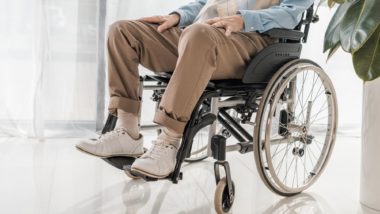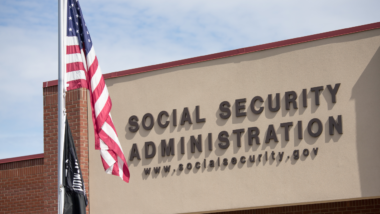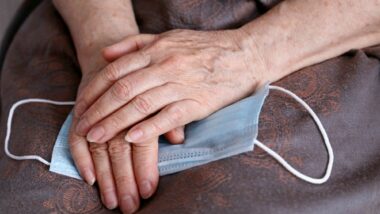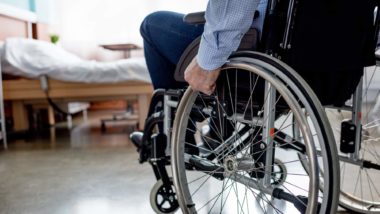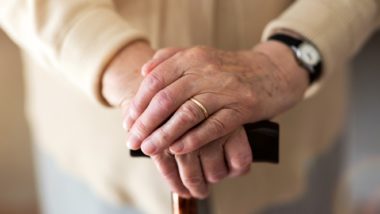Top Class Actions’s website and social media posts use affiliate links. If you make a purchase using such links, we may receive a commission, but it will not result in any additional charges to you. Please review our Affiliate Link Disclosure for more information.
Residents at nursing homes, assisted living facilities, rest homes, convalescent homes, and eldercare facilities may all be at risk of experiencing abuse or neglect.
Victims of elder abuse and neglect, as well as their family members, may be able to sue a nursing home over these abuses.
Can you sue a nursing home for neglect?
Residents and family members may be eligible to hire a qualified attorney and file a lawsuit against their nursing home if they have experienced neglect or abuse.
Survivors who file lawsuits regarding nursing home neglect may be able to collect compensation for injuries, pain and suffering, medical expenses, and other damages. In some cases, family members may file wrongful death lawsuits on behalf of their loved ones.
What is nursing home neglect?
Nursing home neglect may be intentional or due to accidents or failures to act. Negligence and abuse of elders may take many forms and may be due to nursing home policies or the direct action or inaction of individual workers.
If you or a family member has been harmed by nursing home abuse, you may be able to sue a nursing home for the following kinds of neglect:
- Failure by the staff to supervise residents, resulting in falls or injuries.
- Negligent hiring of employees who perpetrate abuse and harm against nursing home residents.
- Failure to properly train and supervise nursing home staff.
- Failure to protect the residents from staff or other residents
- Failure to ensure that the premises are safe and free of hazards, including slippery floors and stairs
- Failure to maintain adequate health and safety policies, including food safety and sanitation
- Failure to provide residents with adequate medical treatment
- Failure to feed or provide nutrition to residents
- Neglect of residents’ personal hygiene
- Social or emotional neglect
Nursing home neglect can result in several serious consequences for nursing home residents, including serious injuries, worsening medical conditions, mental health deterioration, and even premature death.
According to the World Health Organization, one study found that victims of nursing home neglect and abuse were twice as likely to die prematurely than people who were not subject to neglect.
What are the warning signs of nursing home neglect?
Although elders may not always be aware that they are experiencing nursing home neglect, family members may be able to watch for several signs of neglect. These warning signs may include:
- Bedsores
- Dehydration
- Depression
- Soiled or dirty clothing
- Dry or fragile skin
- Malnutrition
- Nightmares
- Poor personal hygiene
- Self-destructive behavior
- Worsening of medical or mental conditions
- Unexplained injuries
- Weight loss
- Withdrawal
How common is nursing home neglect?
Approximately 2.5 million people live in nursing homes, assisted living facilities, and other adult care centers. According to at least one study on nursing home neglect reported by the National Center on Elder Abuse, approximately 10 percent of adults in nursing homes may experience physical abuse.
Not all elder abuse is physical. A 2020 report from the House Ways and Means Committee showed a longstanding issue with the misuse of antipsychotics in nursing homes.
However, elder abuse is thought to be underreported by victims, so the actual rates of occurrence may be much higher. There are many reasons why an elder might not report their abuse, according to the Rape, Abuse & Incest National Network (RAINN), including:
- Being unable to report for physical or mental reasons
- Depending on the abuser for care and basic needs
- Fearing retaliation from the abuser
- Fearing that reporting the abuse will end with them being placed in an institution
- Feeling ashamed to tell someone that a loved one is hurting them or taking advantage of them
- Having concerns that the report will get the abuser in trouble — this can be especially true if the abuser is someone that the elder is close to or cares about
- There are also times when sexual abuse or assault is reported but isn’t taken seriously because of the victim’s age or assumptions about their mental capabilities
Indeed, the National Elder Abuse Incidence Study showed that only about 20 percent of cases of neglect, exploitation, abuse or self-neglect end up getting reported.
Neglect is not always intentional or abusive. Many cases of nursing home neglect occur due to overworked and stressed caretakers and workers. Understaffing and poor management may lead to nursing homes that have too many residents and not enough staff.
This lack of proper management and staffing may lead to dangerous consequences for nursing home residents. However, any kind of nursing home neglect is wrong and may lead to serious and lasting consequences for residents.
Can I file a nursing home neglect lawsuit?
There are federal laws meant to protect elders in nursing homes and hospitals from abuse and neglect. A growing number of elders and their family members are coming forward with litigation over nursing home neglect and abuse.
Common nursing home neglect claims include accidents and intentional acts alike, as well as failure to act. In the worst cases, injuries from neglect or abuse can lead to the patient’s death. In these cases, it is possible for family members to file a wrongful death lawsuit. Recently, a number of nursing home lawsuits have been filed over COVID-related deaths in nursing homes across the United States.
If you or someone you love has suffered from abuse or neglect in a nursing home facility, you may be able to file a lawsuit and pursue compensation.
Of course, filing a lawsuit cannot take away the pain and suffering caused by neglect or abuse, nor can it bring a loved one back to life, but it can at least help to alleviate the financial burden incurred by medical expenses, lost wages, and more, as well as hold those responsible for this suffering accountable for their actions and inactions.
Filing a lawsuit can seem like a daunting prospect, especially while dealing with medical complications or the death of a loved one, so Top Class Actions has laid the groundwork for you by connecting you with an experienced attorney. Consulting an attorney can help you determine if you have a claim, navigate the complexities of litigation, and maximize your potential compensation.
In general, nursing home neglect lawsuits are filed individually by each plaintiff and are not class actions.
Do YOU have a legal claim? Fill out the form on this page now for a free, immediate, and confidential case evaluation. The attorneys who work with Top Class Actions will contact you if you qualify to let you know if an individual nursing home neglect lawsuit or class action lawsuit is best for you. Hurry — statutes of limitations may apply.
ATTORNEY ADVERTISING
Top Class Actions is a Proud Member of the American Bar Association
LEGAL INFORMATION IS NOT LEGAL ADVICE
Top Class Actions Legal Statement
©2008 – 2024 Top Class Actions® LLC
Various Trademarks held by their respective owners
This website is not intended for viewing or usage by European Union citizens.
Get Help – It’s Free
Join a Free Nursing Home Neglect Class Action Lawsuit Investigation
If you qualify, a nursing home lawyer will contact you to discuss the details of your potential case at no charge to you.
PLEASE NOTE: If you want to participate in this investigation, it is imperative that you reply to the law firm if they call or email you. Failing to do so may result in you not getting signed up as a client or getting you dropped as a client.
Oops! We could not locate your form.





